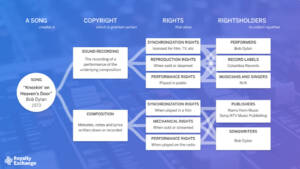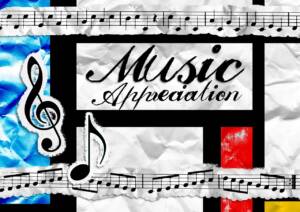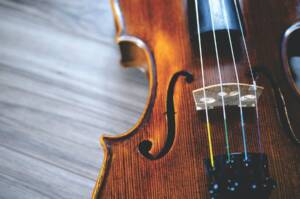What Musicians Need to Know about Copyright Law

Introduction
Why copyright law is important for musicians
Copyright law is crucial for musicians because it protects their creative works from being used or exploited without their permission. It gives them the exclusive right to control how their music is used, distributed, and sold. This means that they can earn money from their music and have a say in how it is used in the public domain. Without copyright protection, musicians would have no control over their work, and anyone could use it for their own purposes without compensating the creator. Therefore, understanding copyright law is essential for musicians to protect their intellectual property and ensure that they are fairly compensated for their work.
Overview of copyright law
Copyright law is a legal framework that protects the rights of creators of original works, including musicians. It gives them exclusive rights to control the use and distribution of their music, including the right to make copies, distribute, perform, and display their work. Copyright law also provides a mechanism for musicians to enforce their rights and seek compensation for any unauthorized use of their music. Understanding copyright law is essential for musicians to protect their creative works and ensure they receive fair compensation for their efforts.
What is Copyright?
Definition of copyright
Copyright is a legal concept that grants creators of original works exclusive rights to control the use and distribution of their creations. These works can include music, literature, art, and other forms of creative expression. Copyright protection is automatic and begins as soon as a work is created and fixed in a tangible form, such as a recording or written document. The purpose of copyright law is to encourage creativity and innovation by providing creators with the ability to profit from their works and control how they are used. It is important for musicians to understand the basics of copyright law in order to protect their own creations and avoid infringing on the rights of others.
What can be copyrighted
In general, copyright law protects original works of authorship that are fixed in a tangible medium of expression. This includes literary works, musical compositions, sound recordings, photographs, and other creative works. It’s important to note that copyright protection does not extend to ideas, facts, or concepts. Additionally, copyright law does not protect works that are not original or that are in the public domain. It’s also worth noting that copyright protection is automatic and does not require registration, although registering your work with the U.S. Copyright Office can provide additional legal benefits.
How long does copyright last
The duration of copyright protection varies depending on the type of work and the country in which it was created. In the United States, for example, copyright protection lasts for the life of the author plus 70 years. For works created by a corporation, the copyright lasts for 95 years from the date of publication or 120 years from the date of creation, whichever is shorter. It’s important for musicians to be aware of the duration of copyright protection for their own works and for works they may want to use or sample in their own music.
How to Obtain Copyright Protection
Registration process
The registration process for copyright can be done online through the U.S. Copyright Office’s website. It is important to note that registration is not required for copyright protection, but it does provide additional benefits such as the ability to sue for infringement and the possibility of receiving statutory damages. The registration fee varies depending on the type of work being registered, but it is generally affordable for most musicians. It is recommended to register your copyright as soon as possible after creating your work to ensure maximum protection.
Benefits of registration
Registering your music with the Copyright Office provides several benefits. Firstly, it creates a public record of your ownership of the work, which can be helpful in case of any disputes or infringement claims. Secondly, it allows you to sue for copyright infringement and claim statutory damages, which can be much higher than actual damages. Thirdly, it provides a legal presumption of ownership and validity of the copyright, making it easier to prove your case in court. Finally, registration is required before you can file a lawsuit for copyright infringement, so it’s important to register your work if you want to protect it.
International copyright protection
International copyright protection is crucial for musicians who want to protect their work beyond their home country. The Berne Convention for the Protection of Literary and Artistic Works is an international agreement that sets out the minimum standards for copyright protection. It ensures that copyright protection is automatic and does not require registration in each country. However, it is important to note that copyright laws vary from country to country, and some countries may not have the same level of protection as others. Musicians should consider registering their work with the copyright office in each country where they want to have protection. Additionally, they should be aware of any international treaties or agreements that their country has signed, as these may provide additional protection.
Fair Use
Definition of fair use
Fair use is a legal doctrine that allows the use of copyrighted material without permission from the copyright owner for certain purposes such as criticism, commentary, news reporting, teaching, scholarship, or research. The determination of fair use is based on four factors: the purpose and character of the use, the nature of the copyrighted work, the amount and substantiality of the portion used, and the effect of the use on the potential market for or value of the copyrighted work. It is important for musicians to understand the concept of fair use and how it applies to their work to avoid copyright infringement and legal disputes.
Examples of fair use in music
Fair use is a legal doctrine that allows for the limited use of copyrighted material without permission from the copyright owner. In music, fair use can be applied in various ways, such as using a small portion of a song for commentary or criticism, creating a parody of a song, or using a sample of a song in a new composition. However, it is important to note that the determination of fair use is subjective and can vary depending on the specific circumstances of each case. Therefore, it is always recommended to consult with a legal professional before using copyrighted material in any way.
How to determine fair use
Determining fair use can be a complex process, as it involves weighing several factors. These factors include the purpose and character of the use, the nature of the copyrighted work, the amount and substantiality of the portion used, and the effect of the use on the potential market for or value of the copyrighted work. It is important to note that fair use is not a black and white concept and can vary depending on the specific circumstances of each case. It is always best to consult with a legal professional if you are unsure whether your use of copyrighted material falls under fair use.
Copyright Infringement
Definition of copyright infringement
Copyright infringement is the unauthorized use of someone else’s copyrighted work. This can include reproducing, distributing, performing, or displaying the work without permission from the copyright owner. Infringement can occur even if the person using the work did not intend to violate copyright law or if they only used a small portion of the work. It is important for musicians to understand what constitutes copyright infringement to avoid legal issues and protect their own copyrighted works.
How to avoid copyright infringement
To avoid copyright infringement, musicians should always obtain permission from the copyright owner before using their work. This can be done by obtaining a license or by seeking permission directly from the owner. Additionally, musicians should be careful not to use too much of someone else’s work without permission, as this can also be considered infringement. It’s important to remember that even if a musician is not making money from their use of someone else’s work, it can still be considered infringement and result in legal action. Finally, musicians should always credit the original creator of any work they use to avoid any confusion or misunderstandings.
Consequences of copyright infringement
The consequences of copyright infringement can be severe for musicians. They may face legal action, fines, and even imprisonment. In addition, they may be required to pay damages to the copyright owner, which can be a significant financial burden. Furthermore, their reputation may be damaged, and they may lose opportunities for future collaborations and performances. It is essential for musicians to understand the importance of respecting copyright law and to take the necessary steps to ensure that they are not infringing on the rights of others.
Conclusion
Summary of key points
In summary, musicians need to be aware of the basics of copyright law in order to protect their own work and avoid infringing on the rights of others. This includes understanding what can be copyrighted, how to obtain copyright protection, and the limitations and exceptions to copyright law. It is also important to be aware of the potential consequences of copyright infringement, such as legal action and financial penalties. By staying informed and taking the necessary steps to protect their work, musicians can ensure that their creative efforts are respected and valued in the industry.
Importance of understanding copyright law for musicians
As a musician, understanding copyright law is crucial for protecting your creative work and ensuring that you receive proper compensation for your efforts. Copyright law grants you exclusive rights to your original music, including the right to reproduce, distribute, and perform your work. By understanding these rights, you can take steps to prevent others from using your music without permission or compensation. Additionally, understanding copyright law can help you navigate the complex world of music licensing and ensure that you receive fair payment for your music when it is used in films, commercials, and other media. Overall, a solid understanding of copyright law is essential for any musician looking to protect their creative work and build a successful career in the music industry.








